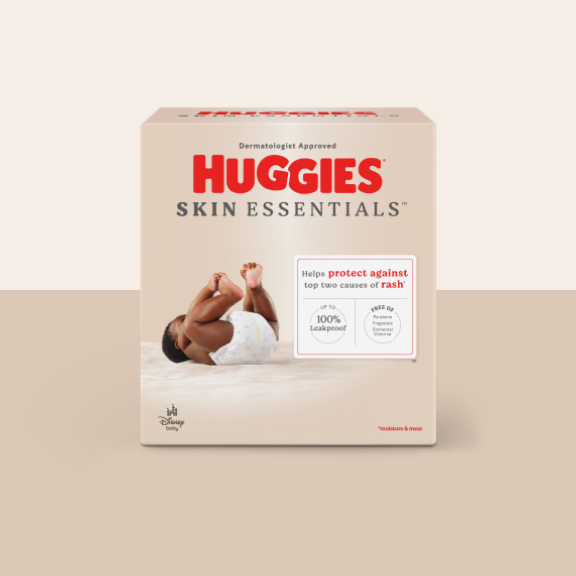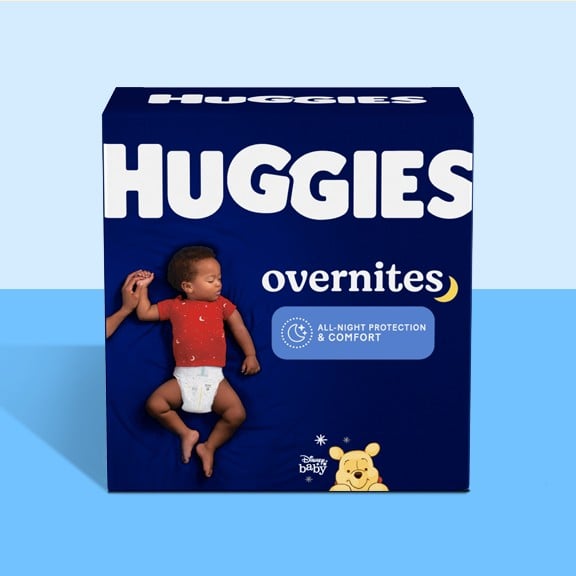The Importance of Cleaning Skin at Every Diaper Change
Using baby wipes that are formulated to support skin health provides multiple benefits for baby’s skin, including effectively removing residue from urine and poop that can be irritating to the skin, helping maintain baby’s skin pH, gently contacting skin to minimize friction, and helping maintain the integrity of baby’s delicate skin barrier.

Did you know…
- Irritants in poop are the #1 cause of diaper rash
- Digestive enzymes that help break down food, including breastmilk/formula, are present in poop and can damage baby’s protective skin barrier, leading to irritation.
- These digestive enzymes are more damaging to baby’s skin when the pH increases in the diapered area (pH becomes more basic, instead of acidic, which supports natural, healthy skin).
- Age and diet can influence poop content; for example, poop from formula-fed infants has been found to have a higher pH than poop from breastfed infants. In addition, diaper rash is known to peak at 9-12 months of age.
- Removing diapers with poop as soon as possible and thoroughly cleaning baby’s skin can help reduce the risk for diaper rash.
- Urine can be irritating to baby skin
- Urine is made up of water, and other substances, like urea, and it has an average pH between 6-7. Although urine is mainly water, it has been shown that some substances in urine can still be irritating to baby skin.
- Urine left on baby’s skin can lead to an increase in skin pH.
- Prolonged contact of urine with baby’s skin can increase the permeability of the skin barrier in the diapered area, allowing irritants and harmful microorganisms to enter the inner layers of baby’s skin and possibly cause irritation.
- Keeping baby’s skin dry and cleaning baby’s skin at every diaper change (even when changing a urine-only diaper) can help maintain skin health.
- Urine can make poop more irritating to baby skin
- Urea is the second highest component found in urine. Although it is believed that urea is not irritating to healthy skin, when mixed with poop inside the diaper, urea can be converted to ammonia. This leads to an increase in pH of the skin that can speed up skin barrier damage by irritants in poop. An increase in skin pH can also damage baby’s skin barrier function and may allow the growth of harmful bacteria and yeast.
- Constant residues of urine on baby skin have the potential to interact with poop and accelerate damage to the skin barrier.
- To help minimize the interaction between urine and poop residues on baby’s skin, it is important to effectively clean baby’s skin at every diaper change.
- Urine residues can leave a bad odor on baby skin
- In the diapered area, the conversion of urea to ammonia and the production of other volatile compounds from urine can leave a bad odor on baby skin.
- Effectively cleaning baby skin after a urine-only diaper, will not only help maintain healthy skin, but will also help minimize bad odor.
- Cleaning baby’s diapered skin at every diaper change with properly formulated baby wipes has many advantages
- Properly formulated baby wipes are specifically designed to gently and effectively clean urine and poop residues from baby skin.
- Properly formulated baby wipes have a pH that complements the slightly acidic pH of baby skin (healthy baby skin pH in the diapered area is about 5-5.5). Maintaining this slightly acidic pH is very important for good skin barrier function and health.
- Baby wipes containing emollients, like Huggies® Calm™ Wipes, gently glide across baby’s skin, helping to minimize the potential for skin barrier damage by friction.
Karien Rodriguez, PhD Biomedical Engineering
Endorsed by Dr. Sharon Rink, MD, Board Certified Pediatrician at Thedacare Physicians Pediatrics in Appleton, Wisconsin.
Learn more about the Huggies® Diaper Rash Care Guide coming soon.










